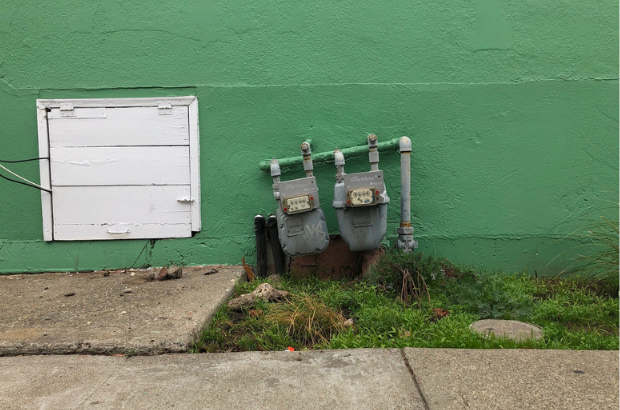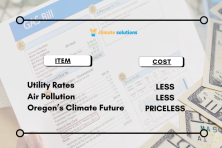One year after communities discovered that NW Natural had been quietly blending hydrogen into their gas system, baseline transparency and oversight standards are now law!
On June 2nd, organizations representing local communities, health, safety, and the environment successfully passed SB 685, which sets nationally leading standards for transparency and oversight of hydrogen blending by gas utilities. Gas utilities blending hydrogen into their distribution system will now have to notify customers and their regulators when they blend hydrogen at rates greater than 2.5% between now and 2030. Starting in 2030, gas utilities will be required to provide notice for any rates of hydrogen blending in their distribution systems.
This comes after months of advocacy from local community members who were blindsided by the news that NW Natural had already begun blending hydrogen into the distribution system in the Portland area. This news highlighted blind spots in Oregon law related to hydrogen and prompted advocates to work on legislation to provide greater transparency for customers and oversight of utilities.
Experts and advocates in the fields of health, pipeline safety, and climate have significant concerns about the health, safety, and environmental risks associated with blending hydrogen into the utility gas system. Hydrogen blending with methane gas can increase indoor air pollution, including nitrogen oxides (NOx), which are associated with asthma and other respiratory problems. Hydrogen blending can also increase pipeline degradation and leakage, which in turn can create safety risks and lead to increased emissions. Numerous studies have shown the infeasibility and high costs of hydrogen blending as a climate solution for residential gas. As Energy Innovation put it in their 2022 report on utility hydrogen plan: “The existing body of research suggests blending hydrogen with natural gas for use in buildings or for power generation is highly inefficient and does little to reduce GHG emissions.” Even the most optimistic outlooks for hydrogen blending into the existing gas system would at most result in a 6-7% reduction in emissions, while costing customers millions, and exacerbating the existing health harms of gas use.
SB 685 faced heavy opposition from gas utilities and fossil fuel interests, who secured significant amendments to delay their obligations to notify customers and regulators of their blending efforts. Despite these amendments, SB 685 contains the strongest protections in the nation for gas utility customers, providing them with the transparency they deserve and greater opportunities for critical oversight.





